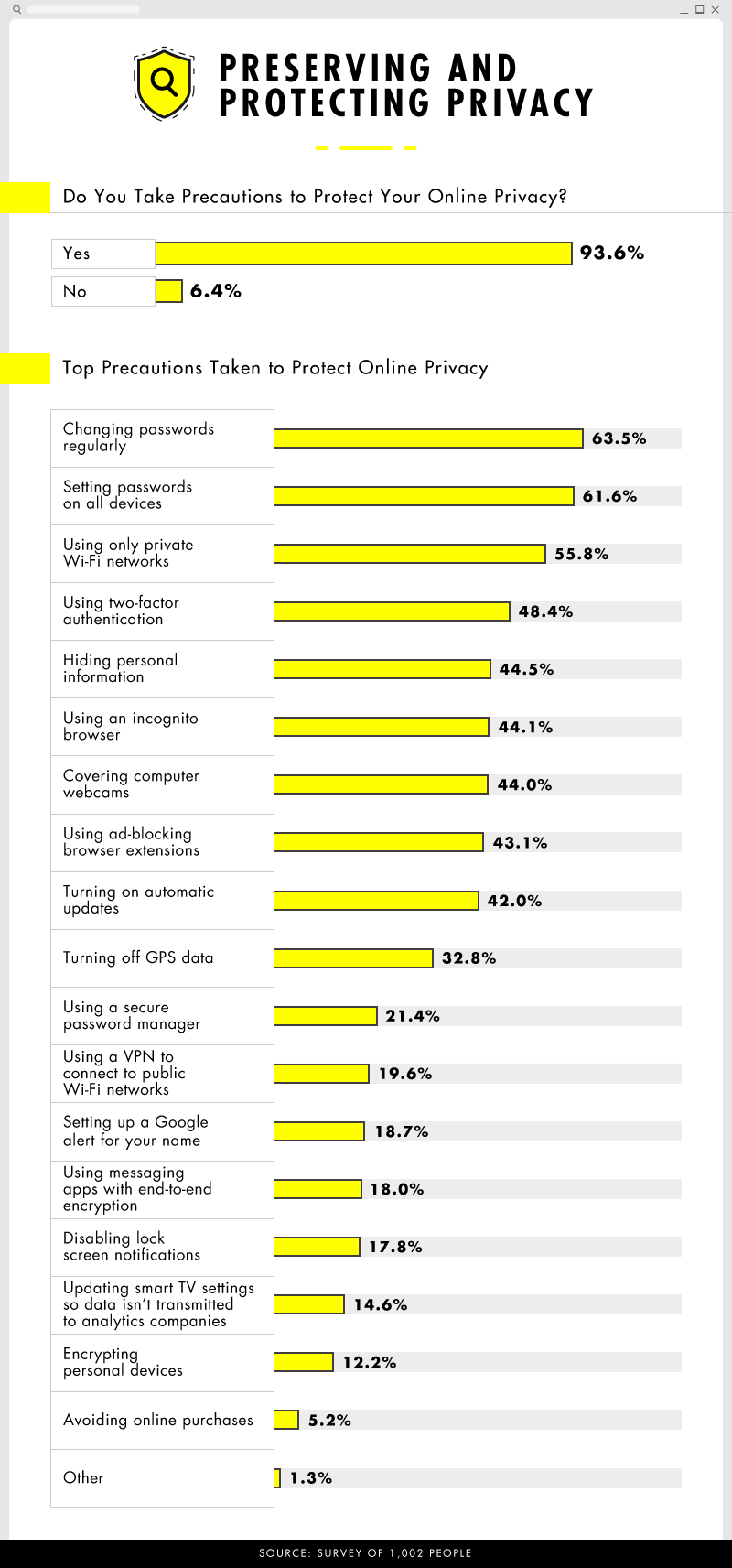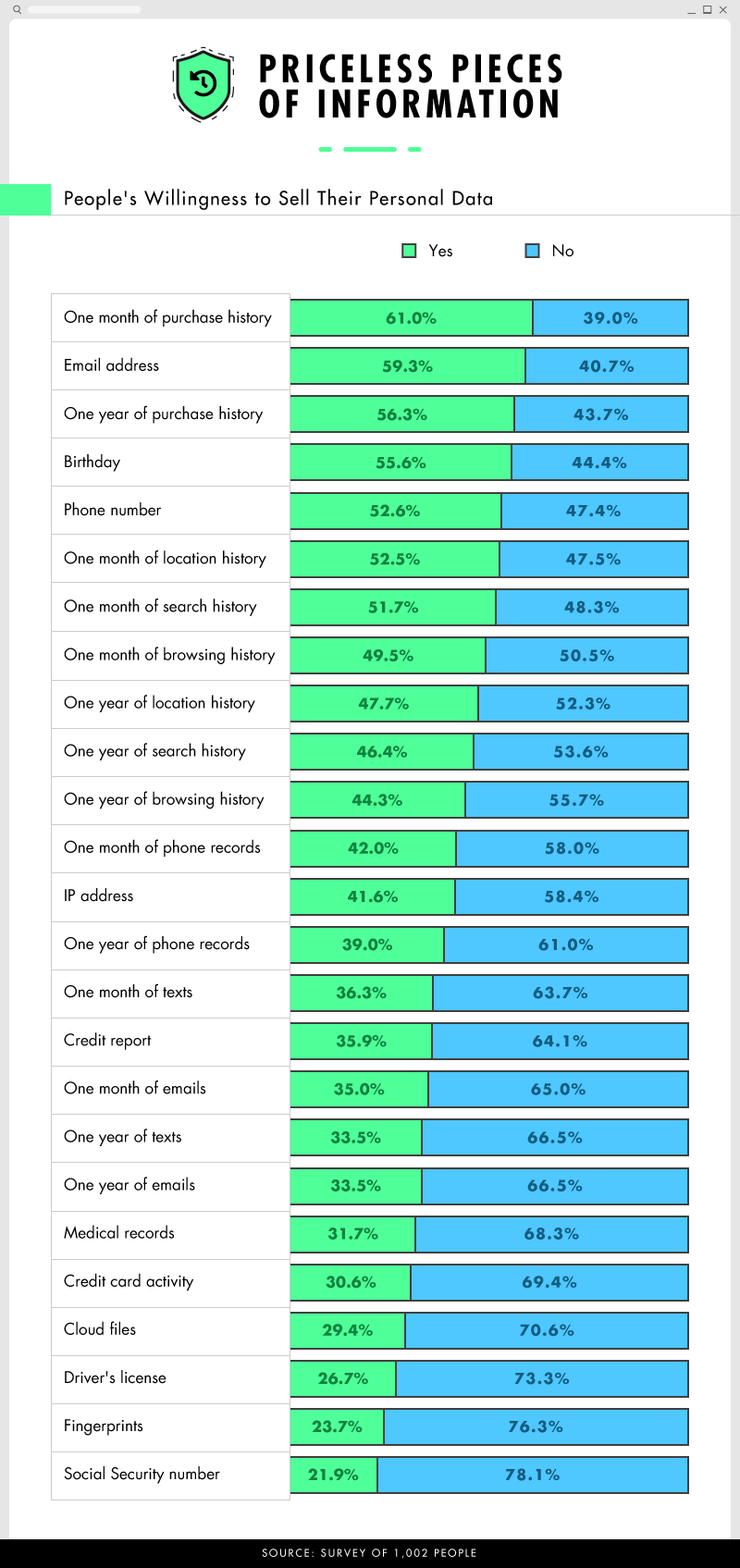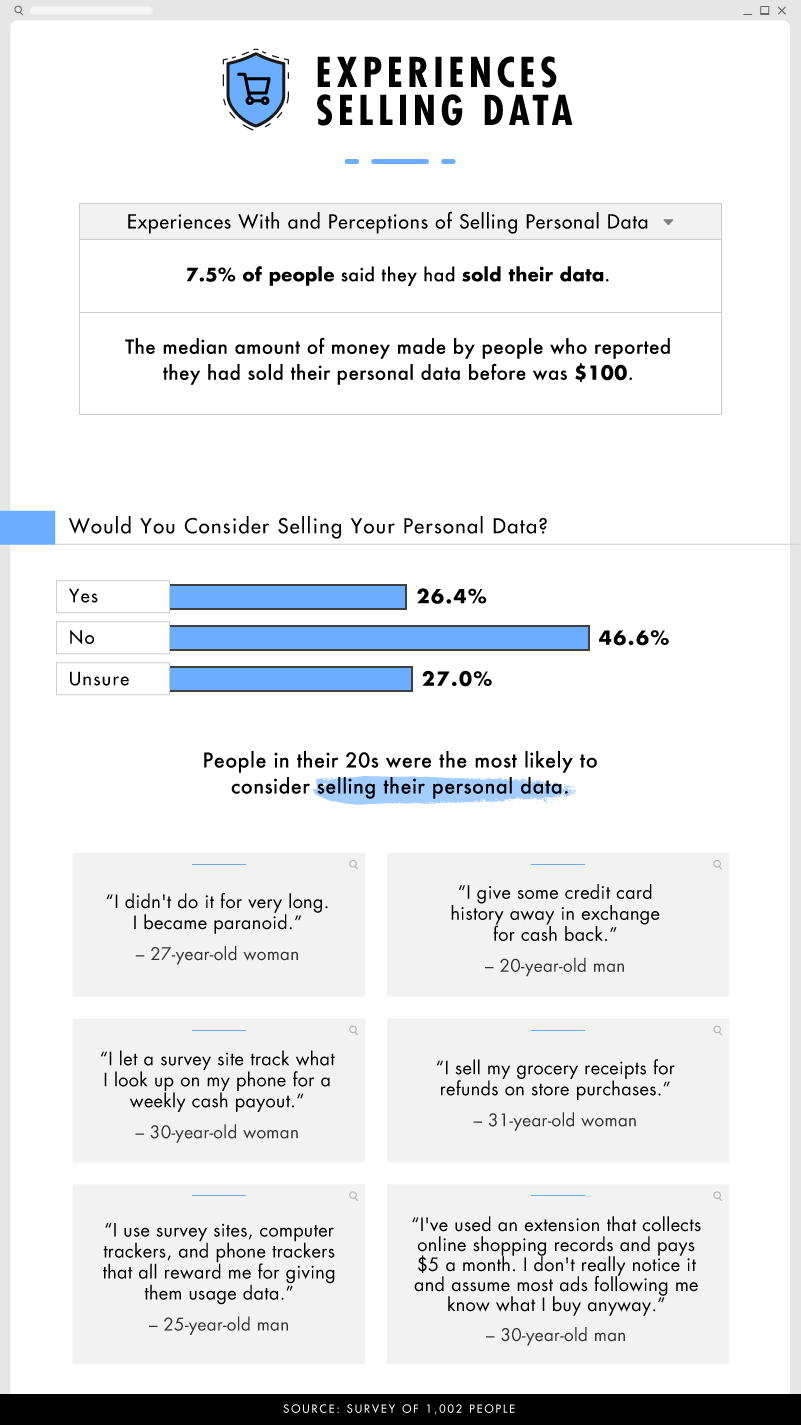How much do people think their personal data is worth? And for how much money are they expecting as they part with their data?
According to a research titled “Putting a Price on Privacy” published by TheBestVPN, a virtual private network service provider, many people have less understanding about how much their data is really worth.
After surveying 1,002 people (51.1% women and 48.9% men) to understand their views on personal data and privacy, TheBestVPN found that "just over 1 in 4 people would consider selling their personal data, with people in their 20s the most likely candidates."
Respondents were asked if they’d ever considered selling their data, how much they thought certain types of data were worth, and whether they took any steps to protect any of their privacy or data.
The study finds that almost all respondents did take some precautions and steps to protect their data. But on the negative side, more than half of those people just meant that they changed their passwords from time to time.
Half of the respondents used two-factor authentication, and a lesser people disabled their GPS data, used VPNs and used encrypted messaging apps.

And when the respondents were asked about how much their personal data would cost, TheBestVPN found that people tended to greatly overestimate the value of their data. Comparing the fact that Social Security numbers go for as low as $2 apiece on the black market, most respondents overestimated the worth of even the most sensitive of data.
"Some of the priciest types of data that are up for grabs are medical records and passports, one-stop shops for collecting a wide variety of information. Even then, however, respondents still aimed their prices well above the going rate," the report said.
Around one-quarter of those surveyed, would sell their driver’s license or fingerprints.
Another way of saying this: many people don't really care much about their personally identifiable data being traded and analyzed.

According to the report, changing passwords regularly proved to be the most used approach to data protection.
This practice, while tried and true, is evolving thanks to password-generating tools and two-factor authentication, with the latter being a method favored by almost half of all respondents.
VPNs on the other hand, can create an encrypted tunnel where internet traffic is protected against data mining.
With people becoming more aware of their privacy, VPN usage is indeed growing, but youngsters don't seem to care much about using this connection method while browsing using public Wi-Fi.

The number of people looking to sell their data is growing because there are many companies that base their profit model on acquisition, buy and sell hoards of personal data.
These businesses are called data brokerage firms, and they gain data through public records and information from other companies. They are not well-regulated, and may deny requests from anyone to delete information they've acquired.
Making things worse, personal data of people are also being sold on deep web black markets at any given moment.
Someone across the globe, or someone just a block away can purchase that identity, and look deep into some inner secrets, use the information to scam the owner of the data, or resell the data for a higher value when they see fit.
Since people in their 20s are most likely to consider selling this data, the implication is terrifying.
And also ironic at the same time, given that the people at that age group are more likely the most tech-savvy individuals.
"Only 7.5% of respondents were familiar with the practice, and the median payout after selling data was $100, a far cry from the valuations that respondents cited. So this begs the question: Is selling our data really better than having it leaked? That’s up for you to decide," TheBestVPN said.